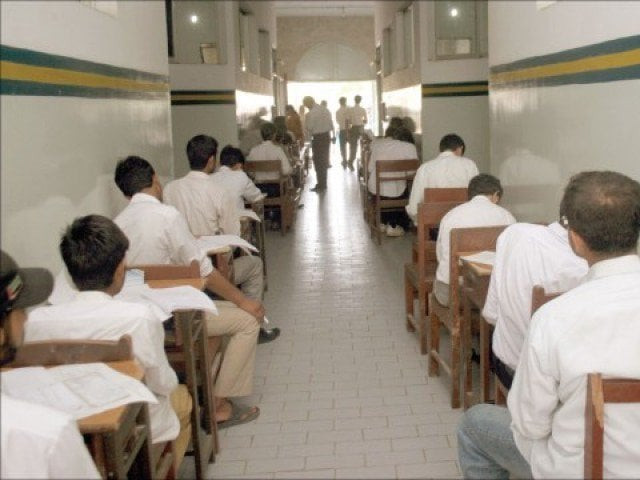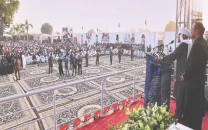Private schools lead in matric results in Punjab
Govt institutions show improvement in pass rates

The Punjab School Education Boards (BISE) have announced the matriculation exam results for 2025 in which private schools have taken top positions in all eight Boards of Intermediate and Secondary Education (BiSE).
However, government schools also have shown a major improvement in pass rates, which experts say is a good sign of education reforms starting to work.
Chief Minister Maryam Nawaz Sharif congratulated the position holder students in the annual matriculation examinations. She applauded Haram Fatima and Haroon Hameed on securing the overall first position. She also congratulated Moeez Qamar of Faisalabad and Faizan Farid Israr of Sahiwal board on securing second position. The chief minister congratulated Muhammad Usman of Rawalpindi, Haji Abuzar Tanveer of Nankana, Noorul Huda and Hasnaina Fatima of Multan on winning the third position.
The CM expressed happiness over positions of female students.
"In the 10th grade exams, Haram Fatima, a daughter of a government schoolteacher from Kasur has secured first position in Punjab, while Haroon Hameed, a son of a government college professor hailing from Lodhran has also secured first position," she stated on social media.
"I assure everyone that merit will always be promoted in exams and there will never be any compromise on that," she added.
From Lahore to Multan, and Rawalpindi to Gujranwala, private school students won most of the top positions in the science and arts groups.
In Lahore board, eight of the top 10 position holders were from private schools. The same trend was seen in Faisalabad, Sargodha, Bahawalpur, Dera Ghazi Khan and other boards.
Education experts say private schools are doing better because they have more resources, better teachers, smaller classes and strong exam preparation systems. Many private school students also attend after-school tuition, which helps them score higher.
But government schools have shown big progress in passing percentages. Lahore's government schools had a passing rate of 68.4%, up from 61.2% last year. Faisalabad reached 66.7%, Gujranwala 65.9% and Multan 64.3%. This improvement is due to new policies like better monitoring of schools, special help for weak students and upgrading facilities in crowded schools.
One big problem, according to the educationists, is the gap between urban and rural schools. While cities like Lahore and Faisalabad saw good results from public sector schools, rural districts like Bhakkar, Rajanpur and DG Khan had government school pass rates below 50%. Issues like poor infrastructure, lack of teachers and fewer resources continue to hurt rural students.
Officials of the Punjab School Education Department said that new efforts like data-based school monitoring, stricter teacher evaluations and involving local communities in school matters had helped improve the results. Special programmes to help weak students also made a difference. But the experts warned that unless deeper reforms were made to fix the system's basic problems, government schools would continue to struggle to compete for top positions.
Private schools still have an advantage because of better student-teacher ratios, modern teaching methods and strong exam preparation set-ups. Families with more money are also spending heavily on private education and extra tuition, which puts students from poorer families at a disadvantage.
"Following the modern challenges, our private schools teachers are contributing maximum and the recent exams results are the proof of it," All Pakistan Private Schools Management Association President Kashif Adeeb Jawdani.
Punjab Teachers Union President Allah Rakha Gujjar said, "There are issues of lack of teachers but public sector schools' students have also performed well. The results show that if the government focuses on improving the infrastructure in public sector schools then the students of poor families can also complete with elite private schools."
Meanwhile, chairing a meeting of the higher education department, the chief minister reviewed proposals for governance reforms and institutional autonomy in public sector universities.
She agreed to establish management councils for government colleges and directed the relevant authorities to implement the 'KPI' system to raise the standard of education.
She also sought a report on underperforming colleges in the province and ordered the formation of an Education Vigilance Squad to conduct surprise checks.

























COMMENTS
Comments are moderated and generally will be posted if they are on-topic and not abusive.
For more information, please see our Comments FAQ